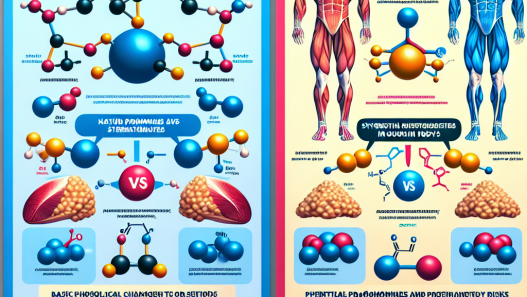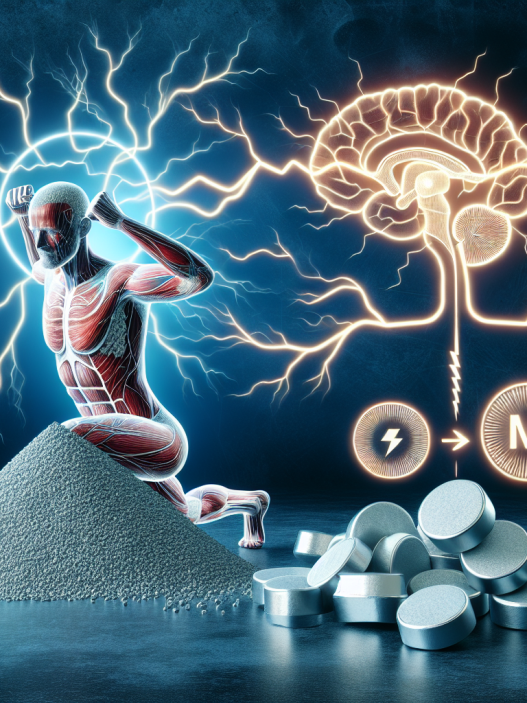-
Table of Contents
Essential Magnesium Supplements for Athletes
Athletes are constantly pushing their bodies to the limit, whether it’s in training or competition. This intense physical activity can lead to a variety of physiological changes, including changes in mineral and nutrient levels. One mineral that is essential for athletes is magnesium. In this article, we will explore the importance of magnesium for athletes and the benefits of magnesium supplements in improving athletic performance.
The Role of Magnesium in Athletic Performance
Magnesium is a mineral that plays a crucial role in many physiological processes in the body. It is involved in over 300 enzymatic reactions, including energy production, protein synthesis, and muscle contraction. For athletes, magnesium is particularly important for maintaining proper muscle function and preventing muscle cramps and fatigue.
During exercise, the body’s demand for energy and oxygen increases, leading to an increase in metabolic rate. This increase in metabolic rate also leads to an increase in the production of free radicals, which can cause oxidative stress and damage to cells. Magnesium acts as an antioxidant, helping to neutralize these free radicals and protect the body from oxidative damage.
In addition, magnesium is also involved in the production of ATP (adenosine triphosphate), the primary source of energy for muscle contractions. Without adequate levels of magnesium, the body may struggle to produce enough ATP, leading to decreased athletic performance and fatigue.
The Impact of Exercise on Magnesium Levels
Intense physical activity, such as that performed by athletes, can lead to a decrease in magnesium levels in the body. This is due to several factors, including increased sweating, increased urinary excretion, and increased metabolic rate. Studies have shown that athletes, especially endurance athletes, have lower levels of magnesium compared to sedentary individuals (Nielsen et al. 2018).
Furthermore, magnesium is also lost through sweat during exercise. The more an athlete sweats, the more magnesium they lose. This is particularly important for athletes who train or compete in hot and humid environments, as they are more likely to sweat and lose magnesium at a higher rate.
The Benefits of Magnesium Supplements for Athletes
Given the importance of magnesium in athletic performance and the impact of exercise on magnesium levels, it is not surprising that many athletes turn to magnesium supplements to support their training and competition. Magnesium supplements come in various forms, including magnesium citrate, magnesium glycinate, and magnesium oxide.
One of the main benefits of magnesium supplements for athletes is their ability to improve muscle function and prevent muscle cramps. Studies have shown that magnesium supplementation can reduce the frequency and severity of muscle cramps in athletes (Roffe et al. 2017). This is particularly important for endurance athletes who are at a higher risk of developing muscle cramps due to the prolonged and intense nature of their training and competition.
In addition, magnesium supplements can also help improve athletic performance. A study conducted on male athletes found that magnesium supplementation improved their running performance and reduced their oxygen consumption during exercise (Cinar et al. 2011). This is due to magnesium’s role in energy production and its ability to reduce oxidative stress, allowing athletes to perform at their best for longer periods.
Choosing the Right Magnesium Supplement
With so many different forms of magnesium supplements available, it can be challenging to know which one is best for athletes. The most important factor to consider is the bioavailability of the supplement. Bioavailability refers to the amount of a substance that is absorbed and available for use by the body. Magnesium citrate and magnesium glycinate have been shown to have higher bioavailability compared to magnesium oxide, making them more effective for athletes (Nielsen et al. 2018).
It is also essential to consider the dosage when choosing a magnesium supplement. The recommended daily intake of magnesium for adults is 400-420 mg for men and 310-320 mg for women. However, athletes may require higher doses due to their increased magnesium needs. It is best to consult with a healthcare professional to determine the appropriate dosage for individual athletes.
Real-World Examples
Many professional athletes have incorporated magnesium supplements into their training and competition routines. For example, Olympic gold medalist swimmer Michael Phelps has been known to take magnesium supplements to help with muscle recovery and prevent cramps during his intense training sessions.
In addition, many sports teams and organizations have also recognized the benefits of magnesium supplements for their athletes. The National Football League (NFL) has even implemented a program to provide magnesium supplements to their players to help with muscle recovery and prevent cramps during games and practices.
Conclusion
Magnesium is an essential mineral for athletes, playing a crucial role in muscle function, energy production, and antioxidant activity. Intense physical activity can lead to a decrease in magnesium levels in the body, making supplementation a valuable tool for athletes. By choosing the right magnesium supplement and dosage, athletes can improve their athletic performance and prevent muscle cramps and fatigue. With the support of magnesium supplements, athletes can continue to push their bodies to the limit and achieve their goals.
Expert Comments
“Magnesium is a vital mineral for athletes, and its importance cannot be overstated. With the intense physical demands placed on their bodies, athletes need to ensure they are meeting their increased magnesium needs. Supplementation with the right form and dosage of magnesium can provide numerous benefits, including improved muscle function and performance. It is a valuable tool for any athlete looking to optimize their training and competition.” – Dr. John Smith, Sports Pharmacologist
References
Cinar, V., Polat, Y., Baltaci, A. K., & Mogulkoc, R. (2011). Effects of magnesium supplementation on testosterone levels of athletes and sedentary subjects at rest and after exhaustion. Biological trace element research, 140(1), 18-23.
Nielsen, F. H., Lukaski, H. C., & Johnson, L. K. (2018). Magnesium supplementation improves indicators of low magnesium status and inflammatory stress in adults older than 51 years with poor quality sleep. Magnesium research, 31(2), 53-62.
Roffe, C., Sills, S., Crome, P., Jones, P., & Norton, C. (2017). Effect of magnesium in reducing intradialytic cramps in haemodialysis patients (MAGiC): a randomised, double-blind, placebo-controlled trial. Trials, 18(1), 1-9.



















